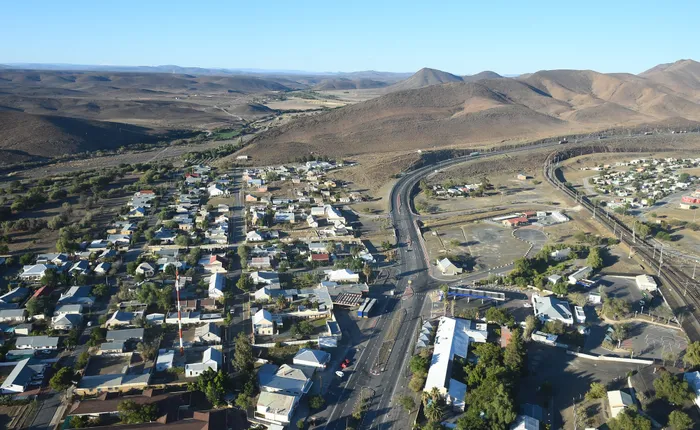
Last week's repo rate cut will help boost the South African property sector a little bit.
Image: Picture: Ayanda Ndamane/African News Agency (ANA)
The property sector struggles when there is much international and local uncertainty, such as that seen in the first quarter of this year.
The first quarter gross domestic product (GDP) number is bad at only 0.1% growth, said Professor Waldo Krugell, an economist within the School of Economic Sciences at North West University (NWU). He said the property sector is captured under gross fixed capital formation, which saw contractions in residential buildings (-5.8% and contributing -0.6 of a percentage point) as well as construction works (-2.8% and contributing -0.5 of a percentage point).
Going forward, Krugell said last week's repo rate cut will help a little bit. However, he said that what is needed is more government of national unity (GNU) reform momentum and some tangible results from implementation.
South African bond yields dropped sharply by the end of trade on Wednesday after Parliament passed the National Budget, boosting market confidence in Treasury’s ability to tighten control over fiscal management, while the SARB’s support for a lower inflation target promotes inflation control and stability, said Bianca Botes, the Director at Citadel Global.
She said that markets remain cautious ahead of key US data due to be released on Friday, which could offer fresh direction.
“Recent figures show a slight slowdown in US economic activity, suggesting that tariffs and ongoing uncertainty are weighing on US growth.
“Nonetheless, global equities hit a record high on Wednesday, as investors bet that the volatility sparked by President Trump’s 'Liberation Day' declaration might be behind them,” Botes said.
Krugell noted with interest reports of the commercial property sector doing much better in the Western Cape than elsewhere in the country, simply because the economy there is doing much better.
“The need for reform and better service delivery has a distinct spatial character. It underscores the importance of the work of Operation Vulindlela 2.0,” he said.
Correlating strongly with City of Cape Town reports of a record-breaking summer tourism season, international property buyers have invested in record numbers in the city’s hotspots, according to the Seeff Property Group.
Propstats data shows that sales worth almost R2.5 billion were concluded in the first five months of this year, the highest in the last half-a-decade. The total value for the whole of 2024 amounted to R3.4 billion, and it was similar in the prior year, 2023.
Sales to international buyers were said to have reached a record R600 million in February, and R700 million in April across the whole city. More than two thirds (67%) of the total value were generated by sales across the Atlantic Seaboard and City Bowl.
Ross Levin, licensee for Seeff Atlantic Seaboard, said sales activity has been up quite notably this year. For the Atlantic Seaboard alone, he said sales to international buyers amount to about R530 million for April. Overall, there were sales in just about all of the suburbs. The highest values recorded are in Camps Bay and Bantry Bay, and the highest volumes in Sea Point (27) and the CBD (32).
Buyers from more than 40 countries invested in property across the Cape this year. The highest volume was attributable to buyers from Germany, followed by the UK, Netherlands, Switzerland, and other European countries. There has also been a notable uptick in sales to American buyers who bought predominantly in Sea Point, Bantry Bay, Mouille Point and in the City Bowl.
Buyers from other African countries have also made a welcome return, including some 12 countries, being Angola, Cameroon, Congo, Eswatini, Gabon, Ghana, Mauritius, Mozambique, Namibia, Nigeria, Tanzania, and Zambia, with Nigeria being the stand-out in terms of the volume of sales.
Levin said the whole market across the Atlantic Seaboard and City Bowl has been very active and there was a shortage of stock, thus presenting good opportunities for sellers right now. Notable recent Seeff sales to foreign buyers include two sales to German buyers at R21 million in Camps Bay and R29 million at the Waterfront as well as a R29.5 million sale at the Waterfront to a buyer from Eswatini.
Other areas where international buyers have been active include Constantia and Bishopscourt in the Southern Suburbs, False Bay areas such as Muizenberg and Fish Hoek, Southern Peninsula suburbs such as Kommetjie and Scarborough, Hout Bay, and Blouberg, where Marlene Picksley, an agent with Seeff Blouberg concluded a record sale of R16.5 million at Sunset Beach to a buyer from the US.
Hout Bay has seen particularly strong demand from international buyers, with as much as 37 sales to buyers from a number of different countries, especially Germany, Netherlands, UK, Denmark, and other European buyers, and the US. According to Stephan Cross, manager for Seeff Hout Bay and Llandudno, the buyers spent between R5 million to R25 million.
He said the Hout Bay market has been particularly hot this year with high sales activity and a shortage of stock, thus presenting good opportunities for sellers.
Propstats showed that total sales across the whole Hout Bay market already tops R600 million for this year, following a record R1.3 billion last year, notably higher than for 2023, and similar to the 2022 Covid-boom sales levels.
Levin said Cape Town is particularly attractive to international buyers, including those from the African continent for its Mediterranean climate, cosmopolitan lifestyle, and access to good amenities. International buyers were said to not only be keen investors in property, but also tend to spend more on a per capita basis, and often invest even more in upgrades and their lifestyle, all of which amount to a notable injection of foreign income for the local economy.
Related Topics:
